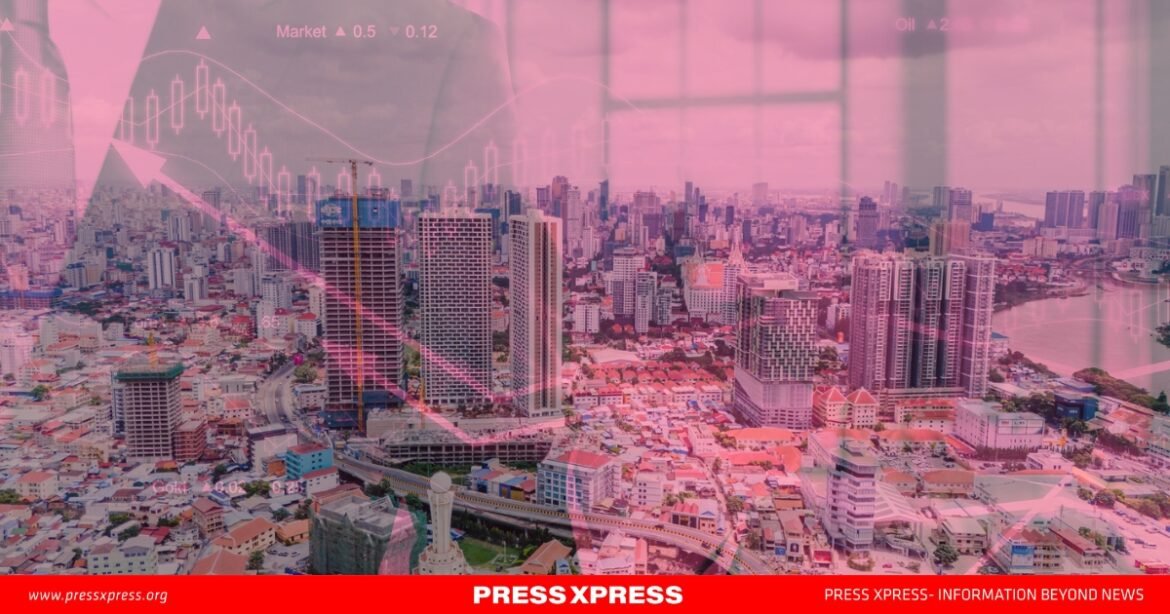Cambodia’s economy is at a crucial juncture, according to the Asian Development Bank’s (ADB) report, Cambodia’s Economic Diversification: A Country Diagnostic Study. The report offers a comprehensive strategy to reduce the nation’s heavy reliance on a few key sectors, paving the way for a more resilient and sustainable future.
The Risks of Over-Reliance on Key Sectors
For decades, Cambodia’s economic success has relied on four main industries: garment manufacturing, tourism, construction, and agriculture. Together, these sectors have driven robust growth and lifted millions out of poverty. However, this concentrated economic model exposes Cambodia to significant risks.
The COVID-19 pandemic starkly highlighted these vulnerabilities. Demand for garments plummeted as global supply chains faltered, and international travel restrictions devastated the tourism industry, which has long been a cornerstone of the country’s economy. While agriculture and construction provided some stability, they were not enough to counterbalance the downturn in other sectors.
The numbers illustrate the imbalance: garments alone account for more than 70% of Cambodia’s exports, and tourism contributes approximately a third of GDP. Such dependency leaves the nation vulnerable to external shocks, underscoring the urgent need for diversification.
Addressing the Barriers to Diversification
Cambodia’s path to a more diverse economy is hindered by structural challenges. A shortage of skilled labor restricts growth in higher-value industries such as technology and manufacturing. Meanwhile, infrastructure gaps, particularly in transport and energy, limit productivity and connectivity. Rural areas remain particularly underserved, preventing many regions from contributing fully to the economy.
Regulatory inefficiencies and governance challenges also deter private sector investment and innovation. Complex business processes and weak enforcement of laws create uncertainty, while reliance on low-cost labor has made it difficult for Cambodia to transition to more advanced industries.
The ADB report emphasizes several key areas for reform to support economic diversification. Investing in education and vocational training is critical to equipping the workforce with the skills needed for emerging sectors like technology, agro-processing, and electronics. Improved infrastructure, particularly in rural areas, can unlock economic opportunities by enhancing connectivity and logistics.
Simplifying regulations and streamlining business processes would create a more attractive environment for foreign direct investment (FDI). This is especially important for industries that require long-term commitments, such as digital services and renewable energy.
Technology and innovation also hold immense potential. The report highlights the importance of adopting digital tools to enhance productivity and innovation across sectors. Encouraging startups and small and medium enterprises (SMEs) to embrace technology could provide a foundation for sustainable growth.
Leveraging Regional and Global Opportunities
Cambodia’s strategic location within ASEAN offers unique opportunities for economic integration. By leveraging trade agreements and diversifying its trade partnerships beyond traditional markets like the US and EU, Cambodia can mitigate risks associated with overdependence. Strengthening ties with regional neighbors could also provide a buffer against global economic uncertainties.
The report also underscores the importance of balancing economic growth with environmental sustainability. Promoting industries such as renewable energy and sustainable agriculture can address environmental concerns while opening up new avenues for innovation and investment.
The ADB report provides a roadmap for a stronger, more resilient Cambodia. By diversifying its economic base, addressing structural challenges, and fostering innovation, the country can reduce its vulnerability to external shocks. Collaboration with regional and global partners and a commitment to sustainability will be crucial as Cambodia charts its path forward.
The stakes are high, but so is the potential. Cambodia has the opportunity to transform its economic landscape, ensuring a future that is not only prosperous but also equitable and sustainable for its people.


